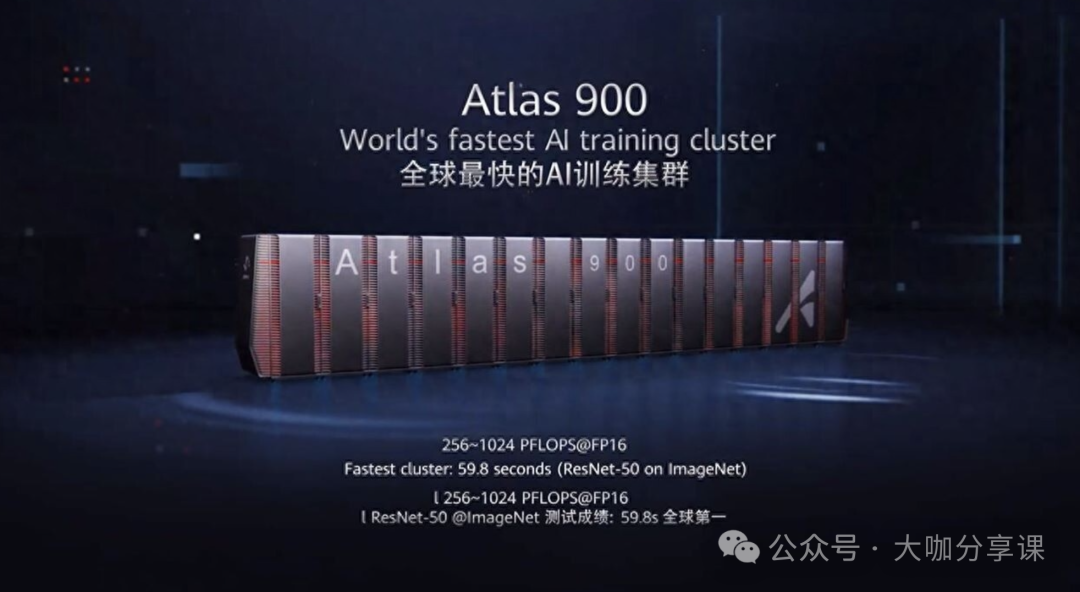“ The U.S. blockade on chip exports to China has made NVIDIA CEO Jensen Huang anxious, as he is well aware of the current level of domestic computing power in China. Recently, Huawei launched the AI computing cluster solution CloudMatrix 384, which may seem similar to others at first glance, but a closer analysis reveals its profound implications.”

According to Huawei, CloudMatrix 384 is built on 384 Ascend chips and achieves efficient inter-chip collaboration through a fully interconnected topological architecture, providing up to 300 PFLOPs of dense BF16 computing power, nearly double that of NVIDIA’s GB200 NVL72 system.
Additionally, the CM384 also boasts advantages in memory capacity and bandwidth, with a total memory capacity exceeding NVIDIA’s solution by 3.6 times and memory bandwidth reaching 2.1 times, providing more efficient hardware support for large-scale AI training and inference.
Although the performance of a single Ascend chip is about one-third that of NVIDIA’s Blackwell architecture GPU, Huawei has successfully achieved an overall computing power leap through large-scale system design, demonstrating stronger competitiveness in scenarios such as ultra-large model training and real-time inference.
According to foreign investment banks, Huawei’s large-scale solution is “a generation ahead of the products currently on the market from NVIDIA and AMD,” and they believe that China’s breakthroughs in AI infrastructure will have a profound impact on the global AI industry landscape.
